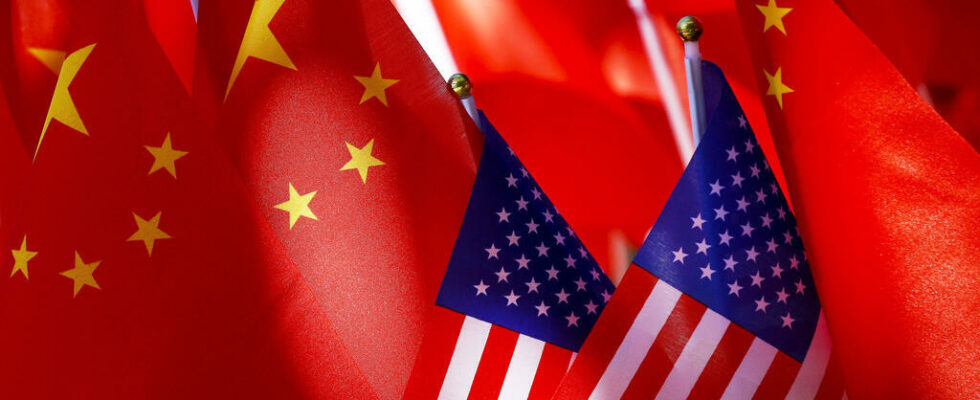The US presidential election will take place on Tuesday November 5. Republican Donald Trump faces Democrat Kamala Harris to succeed Joe Biden. Chinese perspectives on these U.S. elections are mixed, with opinions reflecting both concerns about U.S.-China relations and interest in how each candidate could impact global issues such as trade, security and diplomacy.
3 mins
From our correspondent in Beijing,
It’s no secret that relations have been at their lowest point in decades. The imposition by the United States of new very high customs duties on electric cars, the batteries of these vehicles and Chinese photovoltaic cells does not help matters. Neither Donald Trumpneither Kamala Harris should not reverse this trend.
Among Chinese citizens, some believe Donald Trump could avoid military conflict, a sentiment driven by fears of escalating tensions between the UNITED STATES and the Chinaespecially regarding Taiwan. Others, however, fear that Donald Trump’s policies will revive economic difficulties if he imposes new customs duties.
Also readUS elections: how China found itself at the heart of the debate between Harris and Trump
On heavily censored Chinese social media, Donald Trump supporters dominate. We admire his authoritarian tendencies and his “anti-woke” rhetoric. And somehow, the return of Donald Trump to the White House would be a major advantage for China, because it would signify deeper divisions within American democracy.
China wants stability
Chinese leaders prioritize stability to support economic growth and avoid conflict. Kamala Harris is seen as a more stable option, with policies based on continuity, while Donald Trump is seen as unpredictable, with potential changes that could destabilize the region.
Technological restrictions remain an important topic. Harris would pursue a multilateral approach to limit Chinese technological advances, while Donald Trump could favor customs duties and financial commitments from his allies.
Taiwan remains a major concern for China. Kamala Harris remains firm on support for Taiwan, which could strengthen U.S. commitments to the island’s defense. Donald Trump, while supporting Taiwan, indicated that the island should “ pay for protection “, which adds an element of unpredictability that China finds worrying. Finally, China fears criticism of human rights, particularly supported by Harris, which could increase diplomatic tensions.
Strong protectionism or technological restrictions
If either ends up in the White House, the challenges will be daunting. Donald Trump favors strong protectionism, with policies “ America First » which have weakened economic ties and supply chains with China. In contrast, Kamala Harris would pursue technological restrictions and a desire to decouple certain supply chains to reduce dependence on China. This could create economic disruption.
Also listenThese American laws that want to counter China
Overall, Trump focuses on conditional commitments and transactional policy, while Harris seeks stability through cooperation with allies, despite differences in interests among international partners. In short, whoever wins the next US presidential election, Beijing is unlikely to find a China-friendly administration in Washington.
